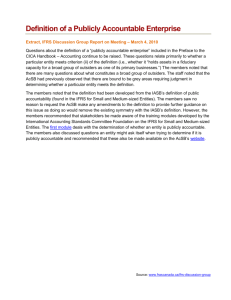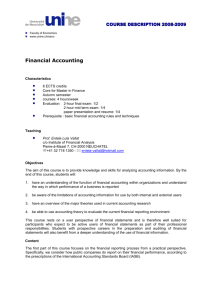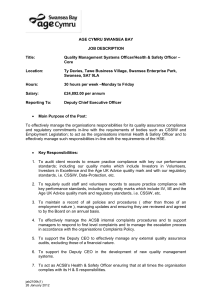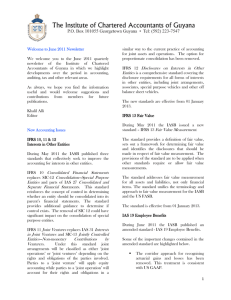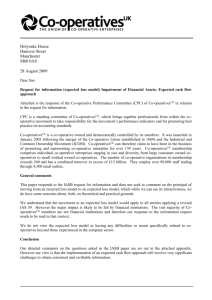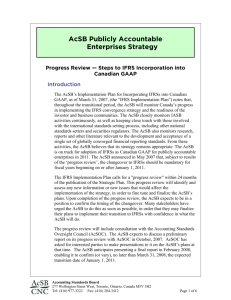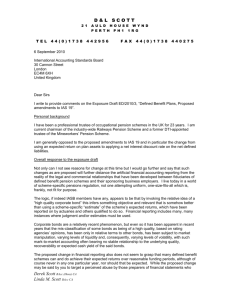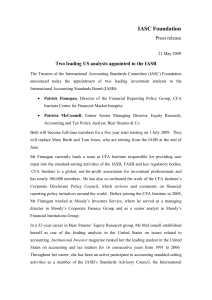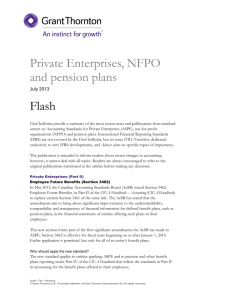Recognition of Deferred Tax Assets for Unrealized Losses
advertisement
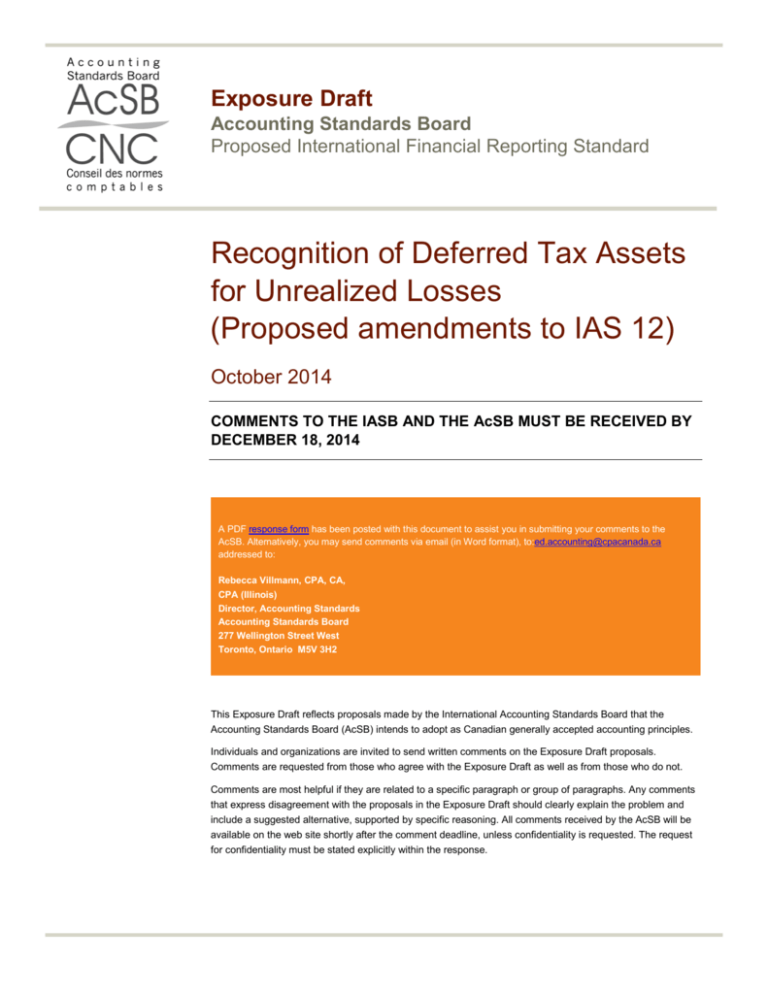
Exposure Draft Accounting Standards Board Proposed International Financial Reporting Standard Recognition of Deferred Tax Assets for Unrealized Losses (Proposed amendments to IAS 12) October 2014 COMMENTS TO THE IASB AND THE AcSB MUST BE RECEIVED BY DECEMBER 18, 2014 A PDF response form has been posted with this document to assist you in submitting your comments to the AcSB. Alternatively, you may send comments via email (in Word format), to:ed.accounting@cpacanada.ca addressed to: Rebecca Villmann, CPA, CA, CPA (Illinois) Director, Accounting Standards Accounting Standards Board 277 Wellington Street West Toronto, Ontario M5V 3H2 This Exposure Draft reflects proposals made by the International Accounting Standards Board that the Accounting Standards Board (AcSB) intends to adopt as Canadian generally accepted accounting principles. Individuals and organizations are invited to send written comments on the Exposure Draft proposals. Comments are requested from those who agree with the Exposure Draft as well as from those who do not. Comments are most helpful if they are related to a specific paragraph or group of paragraphs. Any comments that express disagreement with the proposals in the Exposure Draft should clearly explain the problem and include a suggested alternative, supported by specific reasoning. All comments received by the AcSB will be available on the web site shortly after the comment deadline, unless confidentiality is requested. The request for confidentiality must be stated explicitly within the response. Highlights The Accounting Standards Board (AcSB) proposes, subject to comments received following exposure, to incorporate into Part I of the CPA Canada Handbook – Accounting amendments to IAS 12 Income Taxes. IASB Exposure Draft The International Accounting Standards Board (IASB) recently issued an Exposure Draft, “Recognition of Deferred Tax Assets for Unrealized Losses (proposed amendments to IAS 12)” that is available on the IASB website at www.ifrs.org. The proposed amendments are in response to a request to the IFRS Interpretations Committee to clarify the recognition of a deferred tax asset that is related to a debt instrument measured at fair value. The IASB’s Exposure Draft is accompanied by a Basis for Conclusions. While this material is not part of this Exposure Draft, it may provide useful information to stakeholders. Comments requested The AcSB encourages Canadian stakeholders to respond to the IASB on its Exposure Draft. Specific questions on which the IASB would like input are provided in the Invitation to Comment in its Exposure Draft. The AcSB requests that comment letters be sent directly to the IASB with a copy to the AcSB. The AcSB would like input from Canadian respondents on the following additional question regarding the proposed amendments: The proposed amendments have been developed by the IASB for application by entities around the world. Assuming the Exposure Draft proposals are approved by the IASB, do you believe that there are aspects of the proposed amendments that make some or all of them inappropriate for Canadian entities, even though they are appropriate for entities in the rest of the world? If so, please specify which aspects and what circumstances make the accounting requirements proposed in the Exposure Draft inappropriate for Canadian entities. Responses to this additional question should be sent directly to the AcSB. For your convenience, a PDF response form has been posted with this document. You can save the form, both during and after its completion, for future reference. Alternatively, written comments may be submitted by email (Word format preferred) to: ed.accounting@cpacanada.ca. The deadline for responding to the IASB on its Exposure Draft is September 15, 2014. Responses to the AcSB on the additional question set out above are due on the same date. Recognition of Deferred Tax Assets for Unrealized Losses (Proposed amendments to IAS 12) | i © 2014 Chartered Professional Accountants of Canada Excerpts from and/or links to this publication may be used, provided that full and clear credit is given to the appropriate Financial Reporting & Assurance Standards Canada board, oversight council, committee or individual author, with appropriate and specific direction to the original content. For assistance with crediting this publication, please contact fras-nifccanada@cpacanada.ca.
